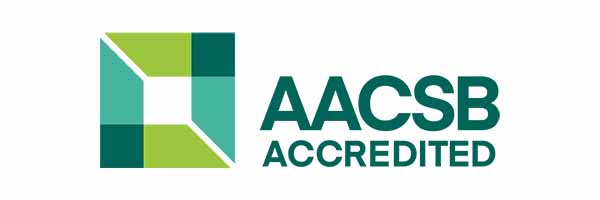MSc Data Analytics
ApplyKey facts
- Start date: September
- Accreditation: AACSB, EQUIS & AMBA
- Application deadline: applications are accepted throughout the year
- Study mode and duration: MSc: 12 months full-time, 24 months part-time
Study with us
On our MSc Data Analytics programme you'll:
- learn from experts across three disciplines - Management Science, Computer & Information Sciences, and Mathematics & Statistics - providing a uniquely broad foundation in data analytics
- apply your skills to industry-led case studies, gaining practical experience and a portfolio of evidence to showcase to employers
- access the latest research in machine learning and AI for business, equipping you with cutting-edge knowledge and tools for data-driven decision-making
- choose from a range of optional classes for specialisation
You may also be interested in:
The Place of Useful Learning
UK University of the Year
Daily Mail University of the Year Awards 2026
Scottish University of the Year
The Sunday Times' Good University Guide 2026
Why this course?
The MSc Data Analytics is designed to create rounded data analytics problem-solvers.
The course focuses on the uses of data analytics techniques within business contexts, making informed decisions about appropriate technology to extract knowledge from data and understanding the theoretical principles by which such technology operates.
You'll gain a comprehensive skill set that will enable you to work in a variety of sectors using a blended learning approach that combines theory, intensive practice and industrial engagement.
The degree is unique by bringing together essential skills from three departments across the University in order to address the needs of a fast-growing industry. It's jointly delivered by:
This unique collaboration avoids the narrow interpretation of the subject offered by similar degrees and presents significant opportunities for businesses to recruit data analytics experts with a high-level expertise and knowledge.
Every year, guest speakers attend our course, sharing their invaluable experiences. As part of the Data Analytics in Practice class, we host representatives from external originations, who present case studies and challenging projects to our students.

Through the programme you'll:
MSc Data Analytics will equip you with the analytical and strategic capabilities required to address complex global challenges, including sustainability. Through modules such as Business & Decision Modelling, and Risk Analysis & Management, you'll learn to apply data-driven approaches to real-world sustainability issues.
Our graduates work across sectors including energy, finance, healthcare, and public policy, using data-driven solutions to address climate risk, optimise resource use, and support sustainability-focused initiatives.
You'll join a community committed to using analytics not only for business performance, but also for advancing the UN Sustainable Development Goals and shaping a more sustainable global future.
Through this programme, you'll graduate equipped with a strong blend of technical and strategic capabilities that employers value across industries such as information technology, energy, finance, and consultancy.
With modules such as Business & Decision Modelling, Big Data Fundamentals, and Machine Learning for Data Analytics, you'll gain hands-on experience with AI, machine learning, and advanced analytics tools, while developing critical problem-solving and business interpretation skills.
Through case studies, industry projects, and exposure to real-world datasets, you'll learn to translate complex analytical findings into actionable business insights. This combination of analytical rigour and business awareness ensures you're highly sought after by employers.
Our alumni have built successful careers in leading organisations such as:
- Morgan Stanley
- Amazon
- Scottish Power
- Scottish Water
- Deloitte
- PwC
- the NHS
This programme is shaped by Strathclyde’s deep partnerships with government bodies, global businesses, and public organisations. Students have engaged in applied projects with leading organisations such as the NHS, Diageo, EPX, and SYSTRA. These connections ensure that your learning remains practical, relevant, and aligned with real-world challenges.
Through guest lectures, collaborative projects, and industry-engaged teaching, you'll gain valuable insight into how data analytics informs policy, drives innovation, and supports strategic decision-making across sectors.
The programme cultivates the mindset and habits of lifelong learning essential for success in a rapidly evolving digital world. You'll develop the ability to critically evaluate emerging technologies, reflect on your professional growth, and adapt to new challenges with confidence.
The Data Analytics in Practice module, delivered across the academic year, encourages students to tackle real-world business challenges presented by industry professionals. Emphasis is placed on teamwork, creativity, and innovation, preparing you to collaborate effectively across disciplines and lead change within data-driven organisations.
Strathclyde graduates stand out as analytical thinkers who are not only skilled, but also bold in applying their knowledge to create meaningful impact.
You'll have access to Strathclyde Inspire, a leading university-wide initiative that supports and encourages all forms of entrepreneurship.
Through Strathclyde Inspire, you can develop an entrepreneurial mindset by engaging in a variety of activities, including innovation workshops, mentoring, and start-up development opportunities, designed to help you turn ideas into impactful ventures.
What you’ll study
Our core Data Analytics in Practice module, delivered across both semesters, is the centrepiece of the programme. It gives you the opportunity to work directly with external organisations on real, complex business problems, applying techniques learned in class in a practical, high-impact setting. This hands-on experience allows you to build a portfolio of industry-focused analytical projects, both for developing skills and impressing future employers.
Semester 1
Semester 1 is designed to provide you with the fundamental technical analytics knowledge from all three departments. Computer & Information Sciences courses will cover core techniques including machine learning and data mining as well as data visualisation and big data platforms
Mathematics courses will ensure you gain strong computational skills while establishing a broad knowledge of statistical tools essential for analytics. Management Science courses will build the foundations of business skills including problem structuring as well as decision analysis, in addition to providing essential practical skills.
Semester 2
Semester 2 is designed to extend your core skills and provide you with opportunities through a broad range of electives to specialise in areas that you are particularly interested to excel. To ensure breadth of knowledge, you'll be required to choose electives from at least two departments.
Summer project
The final component of the MSc course will be a summer dissertation project. You will have optional opportunities to complete your MSc summer dissertation projects in client-based projects, where a number of host organisations will be arranged by the department. These projects will be normally unpaid, however, all costs such as travel and accommodation will normally be covered by the host organisation if out of town.
Strathclyde Business School
Strathclyde Business School was founded in 1948 and is a pioneering, internationally renowned academic organisation with a reputation for research excellence.
One of four faculties forming the University of Strathclyde, SBS is a triple-accredited business school (AACSB, EQUIS and AMBA) and was the first business school in Scotland to achieve this accolade in 2004.
The Business School is home to seven subject departments and a number of specialist centres, all of which collaborate to provide a dynamic, fully-rounded and varied programme of specialist and cross-disciplinary courses.
Strathclyde Inspire
At Strathclyde, we live and breathe entrepreneurship. The University of Strathclyde started life as a place of useful learning, an institution that wanted to make a difference through dong things innovatively, boldly and socially oriented; this founding mission has never been more relevant. Today, we continue to nurture generations of influencers, innovators and industry leaders, empowering our staff, students and alumni to embrace entrepreneurship, transforming their own lives and the lives of others.
Strathclyde Inspire supports and encourages entrepreneurship in all its forms, so whether you want to be more entrepreneurial in your approach to life, business and society, have an idea for a business, or are considering commercialising your research, we will support you at every stage of your journey.
Chat to a student ambassador
Want to know more about what it’s like to be a Strathclyde Business School student at the University of Strathclyde? A selection of our current students are here to help!
Our Unibuddy ambassadors can answer all the questions you may have about their course experiences and studying at Strathclyde, along with offering insight into life in Glasgow and Scotland.
Triple-accredited business school
Course content
For those in full-time employment, it may be possible to take the course over three years and spread the workload after discussions with the course director.
Year 1
- Data Analytics in R (Semester 1)
- Business and Decision Modelling (Semester 1)
- Data Analytics in Practice (Semesters 1 & 2)*
- Two elective classes (Semester 2)
Year 2
- Foundations of Statistics (Semester 1)
- Big Data Fundamentals (Semester 1)
- Optimisation for Analytics (Semester 2)
- Two elective classes (Semester 2)
- Dissertation
*This class is completed over both semesters and possibly over two years, after confirmation with the lecturer of the class. In addition part-time students are required to discuss this class with the course director as attendance is not required if they can fit this into their current job role.
Big Data Fundamentals
10 credits
This module will introduce the challenges of analysing big data with specific focus on the algorithms and techniques which are embodied in data analytics solutions.
At the end of the module, you'll understand:
- the fundamentals of Python for use in big data technologies
- how classical statistical techniques are applied in modern data analysis
- the limitations of various data analysis tools in a variety of contexts
Foundations of Statistics (10 Credits)
This class will provide the basic tools in statistical data analysis and the underlying theory. The class will enable to:
- understand fundamentals of probability and distributions
- learn appropriate visualisations and summaries for different data types
- undertake appropriate statistical tests for different types of data, including producing confidence intervals
Data Analytics in R
20 credits
This module will introduce the R computing environment and enable you to import data and perform statistical tests. The module will then focus on the understanding of the least squares multiple regression model, general linear model, transformations and variable selection procedures.
You can expect to cover concepts such as:
- use of functions and packages in R
- use of the tidyverse for data manipulation
- data visualisation using both base R and ggplot2
- multiple linear regression
- using variable selection techniques to cope with large data sets
- more general model comparison
Business & Decision Modelling
This course will provide the fundamental business modelling skills such as generic problem-solving and basic methodological issues, as well as a good detailed overview of decision analysis techniques relevant to analytics, including decision trees and multi-criteria decision analysis.
Optimisation for Analytics
This course will provide the fundamental optimisation knowledge necessary to the students, such as network optimisation and integer programming, and develop their practical understanding by modelling challenging problems and understanding algorithmic aspects.
Data Analytics in Practice
This class will provide the crucial opportunity for the students to apply their broad knowledge of tools and techniques from other data analytics classes to messy business problems that are presented to them by real clients.
Students are required to choose 40 credits worth of elective classes, and at least from two departments. All optional classes take place in Semester 2.
Department of Computer & Information Sciences
Database Fundamentals
10 credits
This module will help you develop skills in creating and managing database systems, including:
- developing initial database specifications
- formulating database queries using SQL
- understanding the facilities and services which should be provided by a fully featured database management system
- experiencing using a relational database management system in a client-server environment
- understanding future trends in database systems
Evolutionary Computation for Finance 1
Evolutionary computing techniques are computational algorithms that use inspiration from systems and phenomena that occur in the natural world. This class will introduce students to the nature of evolutionary computing, in particular genetic algorithms and genetic programming, and enable them to develop and apply these algorithmic techniques to financial applications.
Evolutionary Computation for Finance 2
This class will explore the more advanced aspects of evolutionary computing and machine learning with special emphasis on financial applications and large times-series datasets. The class will focus on strategies such as neural networks and deep learning.
Legal, Ethical & Professional Issues for the Information Society
This class will give an overview of the legal, ethical and social issues involved in managing digital data. This will cover topics such as privacy, security, intellectual property and various aspects of cybercrime. This will allow both designers and managers to make informed decisions about data management.
Fundamentals of Machine Learning for Data Analytics (10 credits)
The aim of this module is to equip students with a sound understanding of the principles of machine learning and a range of popular approaches, along with the knowledge of how and when to apply the techniques.
The module balances a solid theoretical knowledge of the techniques with practical application via Python (and associated libraries) and students are expected to be familiar with the language.
Machine Learning for Data Analytics
The aim of the class is to:
- understand the aims and fundamental principles of machine learning
- understand a range of the key algorithms and approaches to machine learning
- be able to apply the algorithms covered and interpret the outcomes
- understand the applicability of the algorithms to different types of data and problems along with their strengths and limitations
Department of Mathematics & Statistics
Financial Econometrics
10 credits
You'll be exposed to a number of diverse topics in econometrics that can be used to model real financial data, with an emphasis on the analysis of financial time series. The statistical software R is introduced for financial modelling.
You will learn:
- to analyse various financial time series data
- to undertake statistical analysis of financial risk
- to use R for econometric modelling of real financial data
- to use time series models to do forecasting
Bayesian Spatial Statistics (20 credits)
This module will introduce you to Bayesian statistics and the modern Bayesian methods that are used in a variety of applications. Like with other modules, the focus is on real-life data and using statistical software packages for analysis.
You will gain experience in working with the following:
- visualising spatial data
- geospatial data, including methods for prediction
- bayesian modelling using software to implement Markov Chain Monte Carlo
- areal unit modelling
Statistical Machine Learning (10 Credits)
This class will provide the basic theories of machine learning knowledge to construct a machine model for a real dataset using R. Students are expected to understand ethical issues regarding data processing and management.
Data Dashboards with R Shiny (10 Credits)
This class will develop students' skills in data presentation and statistical communication. Students will learn to develop data dashboards, which are increasingly used to allow key stakeholders (and the public) to gain key insights into data via interactive visualisation.
Department of Management Science
Stochastic Modelling for Analytics
This elective course will offer the students an opportunity to learn methods to analyse systems with uncertainty, as uncertainty modelling is key to a number of applications.
Business Simulation Modelling
The module will focus on the main two forms of business simulation:
- discrete-event simulation (DES)
- system dynamics (a continuous simulation technique)
The class will provide a rational approach to simulation using a number of examples from manufacturing and service operations.
Risk Analysis & Management
10 credits
Risk analysis plays an important role in most business operations. This module is concerned with assessment and measurement of risk, and with the development of risk mitigation strategies that address stakeholder concerns.
Through this module we'll explore the entire process of structuring a risk problem, modelling it, supporting and communicating recommendations, both theoretically and in practice.
Risk management is linked with decision analysis in so far as we explore decision making under uncertainty and it has links with quantitative business analysis as we explore the use of statistics in understanding risk. However, the topic has some unique attributes such as risk communication and the role that experts play in risk assessment.
The module is taught in two parts. The first part is concerned with developing a solid grounding in the techniques and methods used for supporting risk management. The second part explores the application of the basic techniques through a series of case studies.
Business Information Systems
The class adopts a process-based approach, ie all discussion follows the logic of the business processes. You'll be introduced to Business and Information Systems (BIS) as well as the various types of IS, including the databases, Enterprise Resource Planning (ERP) systems, knowledge-based systems, corporate portals and collaboration support systems.
Lectures will provide you with the conceptual knowledge, and in tutorials you'll gain hands-on experience of using packages of the various IS categories.
Learning & teaching
Core and elective classes will be taught across two semesters running from September to December and January to March. Classes will be taught through a combination of lectures, tutorials, hands-on software sessions, projects and case studies. The dissertation is undertaken during the summer months.
Assessment
Classes are assessed by various methods, including written assignments, exams, practical team projects, presentations and individual projects. Exams will take place at the end of each semester in December and April/May.
Facilities
Strathclyde Business School (SBS) is one of a few triple-accredited business schools in the world and is one of the largest of its kind in Europe. SBS was also selected as the Business School of the Year in Times Higher Education (THE) Awards 2016.
The three departments involved in this course work together to provide a dynamic, fully-rounded and varied programme of specialist and cross-disciplinary postgraduate course.
Guest lectures
Every year, guest speakers attend our course, sharing their invaluable experiences. As part of the Data Analytics in Practice module, we host several presentations from external bodies.

Our students

Abdul Rehman
The partnership of Strathclyde with different companies, including Scottish Power and NHS, gave us an opportunity to provide solutions to the problems of these big companies by working on the real massive datasets which actually prepared us for what we will be working on after our degree ends.

Nicolas Kirsch
My classmates and I agreed that the amount of material learned and the progress made over a short time is impressive and very rewarding, going from first steps in coding in September, to building deep neural networks with advanced architectures by April.

Divjot Kaur Narula
The Data Analytics in Practice class in particular taught me the necessary soft skills and technical knowledge of learning how to use really huge datasets, to provide solutions to real-world problems. It offered a glimpse of what we will be working on after graduation.

Scott Docherty
I would absolutely recommend to anyone interested in a career which is remotely related to numbers/programming/analysis to sign up for this course. I feel much more confident when applying for jobs thanks to the skills I learned over the last year and my CV has improved significantly by being able to say I can use R, Python, SQL, MATAB and others.

Matthew Shedden
The ‘Data Analytics in Practice’ module and summer project provide an environment exclusively where skills can be reapplied to real-world problems. Personal highlights from this module were predicting Glasgow traffic activity and building ML models to predict (somewhat successfully) the price of cryptocurrencies.

Vlad Cherman
The module that really brings everything together is ‘Data Analytics in Practice’. This module is excellent at giving students a taste of the type of issues faced in real settings, and is especially great if the goal is to prepare yourself for what will come in the future.

Andrea Oteo Valmaseda
‘Data Analytics in Practice’ is one of the classes that caught my attention in this programme. It gives you the opportunity to make real contacts with workers from leading companies around the world and to apply the knowledge you learnt during the classes to real projects.

Sally Buchanan
The course has refined and improved my analytical and problem-solving skills whilst expanding my knowledge and confidence to analyse large datasets using a range of techniques.
Entry requirements
| Academic requirements | MSc: Minimum second class Honours degree, or overseas equivalent (see our country pages for further information) in:
Applications from those with other degrees are also encouraged if you have demonstrated a good grasp of numerical/quantitative subjects. There will be significant programming elements to the programme; many modules will require the student to use software packages such as Python and R, along with others. Students should have experience of working with programming languages, and a willingness to learn new ones.
|
|---|---|
| English language requirements | Students whose first language is not English must have a minimum of 6.5 IELTS score, with no individual score lower than 5.5. Get more information about the English language requirements for studying at Strathclyde. |
Pre-Masters preparation course
The Pre-Masters Programme is a preparation course held at the University of Strathclyde International Study Centre, for international students (non-UK/Ireland) who do not meet the academic entry requirements for a Masters degree at University of Strathclyde.
Upon successful completion, you'll be able to progress to this degree course at the University of Strathclyde.
Darshana Strathclyde story
Darshana Achhra tells us what she thinks about the course
International students
We've a thriving international community with students coming here to study from over 140 countries across the world. Find out all you need to know about studying in Glasgow at Strathclyde and hear from students about their experiences.

Fees & funding
All fees quoted are for full-time courses and per academic year unless stated otherwise.
Fees may be subject to updates to maintain accuracy. Tuition fees will be notified in your offer letter.
All fees are in £ sterling, unless otherwise stated, and may be subject to revision.
Annual revision of fees
Students on programmes of study of more than one year (or studying standalone modules) should be aware that the majority of fees will increase annually.
The University will take a range of factors into account, including, but not limited to, UK inflation, changes in delivery costs and changes in Scottish and/or UK Government funding. Changes in fees will be published on the University website in October each year for the following year of study and any annual increase will be capped at a maximum of 10% per year. This cap will apply to fees from 2026/27 onwards, which will not increase by more than 10% from the previous year for continuing students.
| Scotland | £15,050 |
|---|---|
| England, Wales & Northern Ireland | £15,050 All home fee status candidates who are given an offer of study on this programme, will be automatically offered our SBS Masters scholarship for Home/UK students. |
| Republic of Ireland |
If you are an Irish citizen and have been ordinary resident in the Republic of Ireland for the three years prior to the relevant date, and will be coming to Scotland for Educational purposes only, you will meet the criteria of England, Wales & Northern Ireland fee status. For more information and advice on tuition fee status, you can visit the UKCISA - International student advice and guidance - Scotland: fee status webpage. Find out more about the University of Strathclyde's fee assessments process. |
| International | £32,800 All international candidates who are given an offer of study on this programme, will be automatically offered our SBS International Masters scholarship, which is £9,000 for this programme. A separate application is required for our higher value Dean’s Excellence Award. |
| Additional costs | Course materialsClass materials comprise textbooks and course handbooks. All of the compulsory handbooks are available to students free on the VLE. Some classes may have a recommended core textbook which you may wish to purchase but copies will be available in the University Library. Placements & field tripsMay incur travel costs depending on clients and project placement. Will be confirmed with students before commencement of the placement. International studentsInternational students may have associated visa and immigration costs. Please see student visa guidance for more information. Other costsStudents are required to submit two hard copy dissertations. An average cost will be £10-15 including delivery to the department. |
| Available scholarships | Take a look at our Business School scholarships. |
Please note: the fees shown are annual and may be subject to an increase each year. Find out more about fees.
How can I fund my course?
Scottish postgraduate students
Scottish postgraduate students may be able to apply for support from the Student Awards Agency Scotland (SAAS). The support is in the form of a tuition fee loan and for eligible students, a living cost loan. Find out more about the support and how to apply.
Don’t forget to check our scholarship search for more help with fees and funding.
Students coming from England
Students ordinarily resident in England may be to apply for postgraduate support from Student Finance England. The support is a loan of up to £10,280 which can be used for both tuition fees and living costs. Find out more about the support and how to apply.
Don’t forget to check our scholarship search for more help with fees and funding.
Students coming from Wales
Students ordinarily resident in Wales may be to apply for postgraduate support from Student Finance Wales. The support is a loan of up to £10,280 which can be used for both tuition fees and living costs. Find out more about the support and how to apply.
Don’t forget to check our scholarship search for more help with fees and funding.
Students coming from Northern Ireland
Postgraduate students who are ordinarily resident in Northern Ireland may be able to apply for support from Student Finance Northern Ireland. The support is a tuition fee loan of up to £5,500. Find out more about the support and how to apply.
Don’t forget to check our scholarship search for more help with fees and funding.
International students
We've a large range of scholarships available to help you fund your studies. Check our scholarship search for more help with fees and funding.
Careers
The aim of the course is to develop graduates who can use data analytics technology, understand the statistical principles behind the technologies and understand how to apply these technologies to solve business problems.
Graduates will be able to bridge the various knowledge domains that are relevant for tackling data analytics problems as well as being able to identify emerging themes and directions within data analytics.
Graduates will display abilities across the three component disciplines. Examples of graduate employers and job roles include:
- Software Development Engineer - Machine Learning at RBS
- Junior Data Scientist at V.Group
- Data Scientist at Solita Scandinavia
- Business Analyst at Scottish Power
- IT Graduate at Scottish Power
Apply
For information and guidance on the application process, take a look at our How to Apply web page.
Start date: Sep 2026
Data Analytics
Start date: Sep 2026
Data Analytics
Contact us
SBS Postgraduate Admissions
Telephone: +44 (0)141 553 6105 / +44 (0)141 553 6116
Email: sbs.admissions@strath.ac.uk
Strathclyde Business School, University of Strathclyde
199 Cathedral Street
Glasgow
G4 0QU
Have you considered?
We've a range of postgraduate taught and Masters courses similar to this on which may also be of interest.
Glasgow is Scotland's biggest & most cosmopolitan city
Our campus is based right in the very heart of Glasgow. We're in the city centre, next to the Merchant City, both of which are great locations for sightseeing, shopping and socialising alongside your studies.




